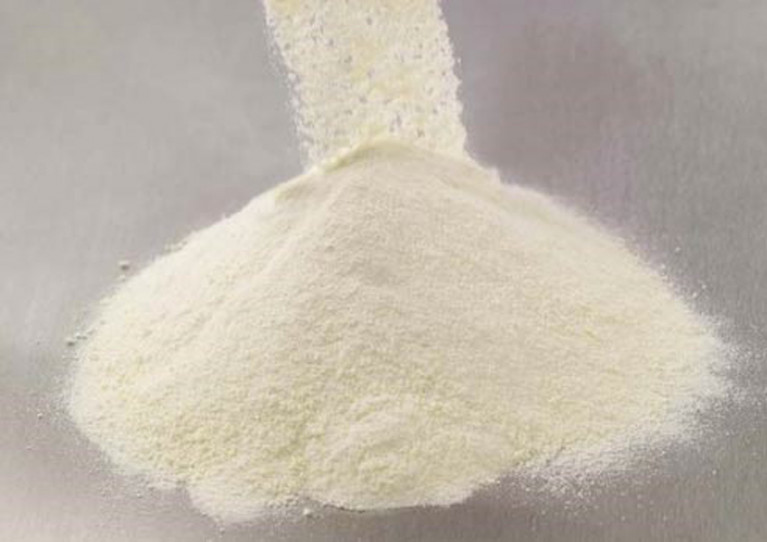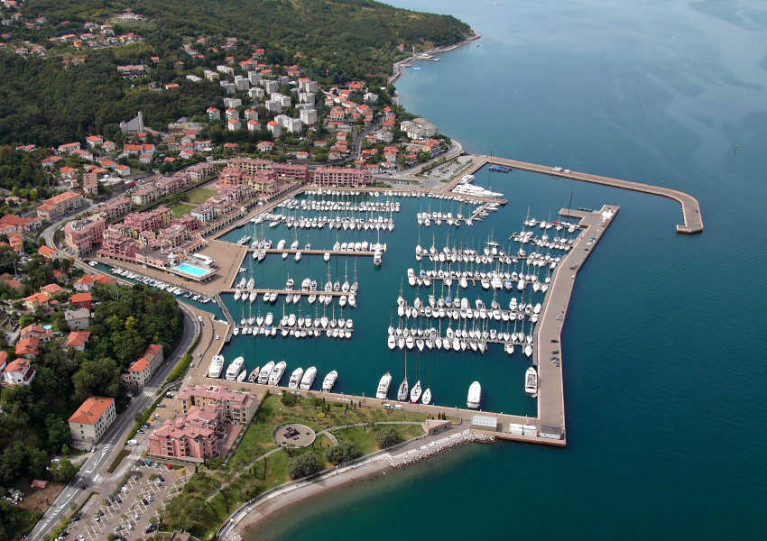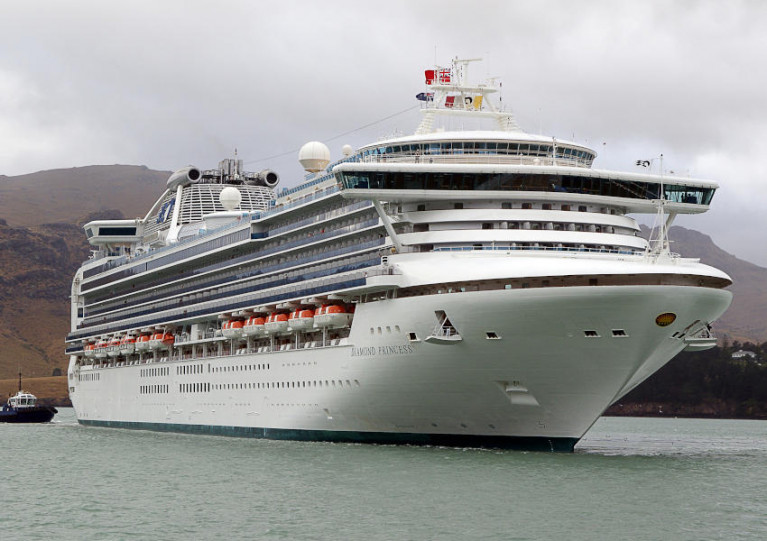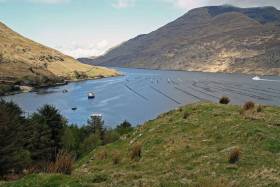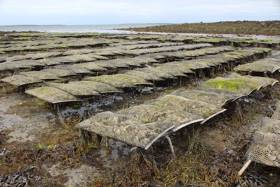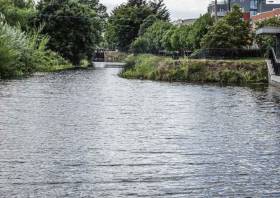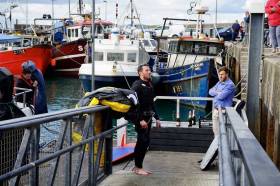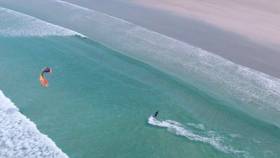Displaying items by tag: Health
Minimum Safety and Health Requirements for Improved Medical Treatment on Board Vessels
The European Union (Minimum Safety and Health Requirements for Improved Medical Treatment on Board Vessels) Regulations 2021 transpose into Irish law European Council Directive 92/29/EEC (as amended) concerning the minimum health and safety requirements for improved medical treatment on board vessels.
These regulations give effect to the directive in full, included amendments to the annexes set out in European Commission Directive (EU) 2019/1834 detailing requirements of medical supplies and equipment to be carried on board for each category of vessel.
In line with the requirements set out in the annexes to the revised directive, the medicine and required dosage under each category is outlined in Marine Notice No 60 of 2021 (available to download below) in order to assist vessel owners in complying with the directive.
Owners and masters of Irish vessels are required to comply with the requirements of the amended directive as of this past Saturday 20 November.
A fisheries science partnership previously touted as a ‘game changer’ in the field of marine food is developing new health supplement based on fish protein from blue whiting.
Bio-Marine Ingredients Ireland (BII) is preparing to begin clinical trials of its soluble protein hydrolysate power, which it’s hoped could improve muscular health among the elderly.
“We are one of the first companies globally to take under-utilised raw fish materials and transform them into powders suited to applications for human nutrition,” said Dr Snehal Gite, senior research and development technologist.
“At BII, we are processing a low-value blue whiting fish into a high value nutritional ingredient which could offer enormous benefits for skeletal health in older people.
“The outcome of this research project could see BII enter a valuable global market, which will ultimately benefit Irish fishermen, industry and the associated supply chain.”
Research on this potentially health-boosting supplement is featured in this week’s Oceans of Learning series from the Marine Institute, which looks at the ocean and its connection to human health and wellbeing.
The work of the National Marine Biodiscovery Laboratory of Ireland (NMBLI) is also in focus, as a number of new natural products with potentially powerful properties have been found in Ireland’s waters in recent years.
“Our ocean could offer a treasure trove of cures,” said Joe Silke, director of marine environment food and safety Services at the Marine Institute.
“With so much of our marine habitats yet to be explored, and an ever-changing marine environment … Ireland’s ocean wealth is still to be uncovered.”
Videos, interactive activities and downloadable resources are available from the Our Ocean: Our Health and Wellbeing portal on the Marine Institute website.
J/24 European Championship Cancelled Over Coronavirus Concerns
The International J/24 Class Association has agreed with the Italian Federation of Sailing to cancel the 2020 J/24 European Championship, which had been scheduled for 29 April to 5 May 2020 at Porto San Rocco near Trieste in Italy.
“After consulting the members of the organising committee and the J/24 class, cancelling the European Championship is the responsible and wise decision to make at this time,” said Roberto Sponza, 2020 J/24 European Championship event chairperson.
As reported yesterday on Afloat.ie, all sailing events in Italy have been suspended until Friday 3 April as the country enforces strict measures to control the spread of the virus.
“At this time, we must confront the possibility that these restrictions within Italy could be extended or ended,” said Sponza. “Other European governments may impose similar restrictions on travel in the near future.
“All these restrictions have impact on the competitors who have registered for this year’s European Championship.”
The cancellation will also apply to the 2020 Italian Open National Championship scheduled for May 28-June 2 at Porto San Rocco.
All eyes are now on the World Cup Series event in Genoa, which is expected to begin on Sunday 12 April and represents the final opportunity for Irish sailors and others to grab a spot at Tokyo 2020.
Irish citizens are among the hundreds of passengers quarantined on a cruise liner in Japan amid the coronavirus epidemic, the Department of Foreign Affairs has confirmed.
According to RTÉ News, 454 cases of coronavirus have been diagnosed in the Diamond Princess, with a further 99 testing positive for the virus.
The British ship had 3,700 passengers and crew on board when it was initially detained by Japanese authorities in Yokohama on 4 February.
The United States has already evacuated more than 300 citizens and their family from the ocean liner, with 14 positive readings for the virus among them. RTÉ News has more on the story HERE.
As previously reported on Afloat.ie, here the HSE has instituted a new reporting protocol for ships entering Irish ports over the outbreak, which has killed more than 1,700 people in China and a small number abroad.
New Research On Improving Biotoxin Monitoring In Shellfish
A postgraduate researcher is investigating the biotoxin production potential of Azadinium and related species in Irish waters, particularly in estuaries used for shellfish aquaculture such as Killary Harbour and Bantry Bay.
Stephen McGirr — a PhD candidate at the Institute of Technology Sligo and a Cullen Fellow at the Marine Institute — is studying Azadinium, a planktonic single-celled plant that lives in marine waters around Ireland.
Under certain conditions, Azadinium produces biotoxins which can build up in shellfish that feed on them. If eaten by humans, this can lead to shellfish poisoning.
Understanding more about the biology of this species would help both the shellfish aquaculture industry and protect human health.
“The genus Azadinium was first linked to incidents of shellfish poisoning in the 1990s and both toxic and non-toxic forms of the Azadinium species have since been identified in Irish waters,” McGirr says.
“More knowledge of the biology of the species is needed to support monitoring efforts currently underway to assist the aquaculture industry.”
Ireland’s aquaculture industry employed 1,925 people on 288 aquaculture production units, according to Bord Iascaigh Mhara’s Business of Seafood Report 2018. In 2018 it is estimated that Ireland produced 24,200 tonnes of farmed shellfish valued at €56 million.
“Aquaculture is a valuable industry to our national economy as well as for many of Ireland's coastal communities,” McGirr adds.
“The closure of aquaculture production sites due to biotoxins produced by organisms such as Azadinium impacts the industry and can also be detrimental to local economies.”
Stephen’s research supports the Marine Institute's National Phytoplanton Monitoring Programme, which monitors phytoplankton populations and dynamics around the Irish coastline.
‘Aquaculture is a valuable industry to our national economy as well as for many of Ireland's coastal communities’
McGirr says the Marine Institute’s Cullen Fellowship Programme is giving him the opportunity to learn and develop his skillset, working alongside scientists who are experts in their field, as well as gaining hands-on experience using state-of-the art equipment in the Institute's laboratories.
“I have joined two surveys on the RV Celtic Voyager along the south and western coastline of Ireland to collect both water column and sediment samples for our analyses.
“I have also presented my research at international conferences, including the International Conference on Molluscan Shellfish Safety held in Galway and the International Conference on Harmful Algae, held in Nantes, France.”
McGirr is currently focusing his efforts on translating the product of his research into articles for peer-reviewed scientific journals. His research supervisors are Joe Silke, Marine Institute and Dr Nicolas Touzet, IT Sligo.
The Cullen Fellowship Programme builds marine research capacity and capability by equipping graduates with the skills and expertise in raising awareness about our ocean, as well as Ireland's rich marine biodiversity and ecosystems.
The programme has provided grant aid to the value of €2.06 million supporting 24 PhD and three MSc students over the last five years. The research addresses a number of the 15 research themes identified in the National Marine Research and Innovation Strategy 2017-2021.
This project (Grant-Aid Agreement No CF/15/01) is carried out with the support of the Marine Institute and funded under the Marine Research Programme by the Irish Government.
Workshop Hears Latest Research On Shellfish Safety
More than 90 shellfish producers and processors, scientists, agencies and stakeholders attended the 11th Shellfish Safety Workshop earlier this month to discuss the latest advances in the field in Ireland.
The workshop, which took place on Tuesday 8 October in the Radisson Blu Hotel Athlone, was hosted by the Marine Institute and co-sponsors Food Safety Authority of Ireland, Sea Fisheries Protection Authority and Bord Iascaigh Mhara.
The event offered an opportunity to exchange information on the latest research and information on the cause and control of shellfish products harvested and farmed around Ireland's coast.
Speakers included Dr Conor Graham, of GMIT Marine and the Freshwater Research Centre, on the development of the world’s first scientific-based shellfish traceability tool, as previously reported on Afloat.ie.
Other speakers included Dr Monika Dhanji Rapkova, of the Centre for Environment, Fisheries and Aquaculture Science, on the learnings on regulated and emerging biotoxins in British shellfish.
Dr Eileen Bresnan (Marine Scotland Science) presented a talk on the regional distribution of harmful algal events in North Atlantic Area. Dave Clarke of the Marine Institute also talked about the insights and perspectives on monitoring algal and biotoxin events in Irish coastal waters from the past 20 years.
Micheál O'Mahony of the Sea Fisheries Protection Authority presented on the recently published European baseline survey of norovirus in oysters, while Dr Sinéad Keaveney (Marine Institute) discussed the survey in the Irish context.
There were also a series of flash presentations from representatives of the Marine Institute, Bord Iascaigh Mhara, Sea Fisheries Protection Authority, Food Safety Authority of Ireland, Dublin City University, Sligo Institute of Technology and Health Services Executive.
The proceedings of the workshop are currently being compiled for publication and in the coming weeks will be available for download from the Marine Institute’s Open Access Repository.
Waterways Ireland Warns Of Reported Leptospirosis On Royal Canal
Waterways Ireland have been notified by the HSE of a number of cases of Leptospirosis reported recently following exposure to the water on the Royal Canal in North Dublin.
Individuals are instructed not to engage in swimming, diving or immersive activity such as deliberate capsizing in the waterway pending further advisory.
Any facilities/activity providers are also requested to ensure, to the best of their ability, that clients do not engage in the same activities.
The HSE further advises all individuals partaking in watersport (and in turn for activity providers to advise their clients) of the risk, which is small but real, of acquiring Leptospirosis from water-based activities.
Persons with symptoms (a flu-like illness) within a three-week period after engaging in a water-based activity should seek medical attention immediately, mentioning any watercourse exposure.
Further information on Leptospirosis is available from the HSE website. Other enquiries can be directed to [email protected] or by contacting the Waterways Ireland Communications Office on 071-9650787.
What is Leptospirosis?
Leptospirosis is a bacterial infection frequently found both in domestic and wild animals, which can spread to humans. Leptospirosis in Ireland is usually picked up from rats. The infection is spread through contact with rats, or rat urine generally.
Leptospirosis is a recreational hazard for those who participate in outdoor sports in contaminated areas and has been associated with water sports.
Occupations at risk would include veterinary surgeons, farmers, meat inspectors, butchers, abattoir and sewer workers.
High-risk water includes stagnant, dirty-looking or obviously polluted fresh water found in ditches, drains, ponds, lakes or rivers. Sea water poses less risk.
What precautions should I take?
- Do not go swimming or boating in water which is known to be or obviously polluted.
- Cover any cuts or abrasions with a waterproof dressing while swimming or canoeing.
- Shower thoroughly as soon as possible following water activities.
- Make sure the sporting clothing you wear minimises your contact with water.
- Wash your hands after water activity, handling any animal or contaminated clothing and always before eating, drinking or smoking.
- Clean any cuts acquired during swimming, fishing or other near-water activities. Apply first aid as soon as possible.
Rinsing dogs who have been swimming in high risk water reduces the risk of infection. - High-risk workers should always wear their personal protective equipment and clothing at all times when in high risk situations.
- If you get a flu-like illness within a three-week period after engaging in any of these activities you should visit your doctor immediately, and tell her or him of your concerns and possible exposure to dirty or stagnant water.
Woman Appeals For Help To Bring Fiancé Paralysed After Lusitania Dive Back To Canada
A woman is appealing for help to bring her fiancé back home to Canada after he was paralysed following a diving incident at the Lusitania wreck last month.
As previously reported on Afloat.ie, a man was airlifted to hospital and later transferred to University Hospital Galway’s specialist decompression unit after he took ill during a diving expedition at the wreck site off the Old Head of Kinsale.
It’s since emerged that the casualty, James (Kim) Martin, was left with near total paralysis in the aftermath of the incident on Thursday 8 August.
According to The Irish Times, the experienced diver had been due to marry Kristin Chadwick the week after his trip to Ireland. Chadwick first learned of what happened to her fiancé via an online news search.
Within days she was at his bedside and remained in Galway while Martin recovered from a number of serious complications. He is now able to communicate and has “limited use of his upper body” but needs a respirator to breathe.
Now Chadwick is trying to raise $100,000 in a crowdfunding campaign to being her partner back to Canada by air ambulance for long-term rehab.
The Irish Times has much more on the story HERE.
Hero’s Welcome In Ballycotton For Eoghan Quinn Despite Lack Of Wind Foiling His Kitesurf Challenge
There was some disappointment for kitesurfer Eoghan Quinn as his attempt to ride the waves from France to Ireland yesterday (Sunday 30 June) ended prematurely when the wind dropped off Cornwall, just short of the halfway point.
But the 31-year-old, who has Type 1 diabetes and was taking on the challenge to raise funds for and awareness of Diabetes Ireland, arrived in Ballycotton on his support boat yesterday evening to a hero’s welcome.
“A lot of planning went into this but mother nature is the one thing we cannot control, but we achieved what we set out to do which was to raise awareness,” he told RTÉ News.
The route from France to Ireland through the Celtic Sea — dubbed the ‘Kitesurf Road’ — has never before been completed by kite and board.
Quinn had hoped to beat the Cherbourg-Rosslare ferry by crossing in under 16 hours.
Ballycotton welcomes @EoghanQuinn1 pic.twitter.com/lwoL2KWw9U
— Ballycotton (@BallycottonIRE) June 30, 2019
A Waterford man with Type 1 diabetes is currently kitesurfing over 275 miles of open water from France to Ireland today (Sunday 30 June) in aid of a charity supporting people with the disease.
Eoghan Quinn is attempting to race the Cherbourg-Rosslare ferry and cross the waves of the Celtic Sea in under 16 hours to raise funds for of Diabetes Ireland. (See his EverydayHero fundraising page HERE.)
It’s a route that’s never before been completed by a kitesurfer — and Eoghan will have the added complication of managing his blood glucose and insulin levels along the way.
But such challenges are nothing new to the 31-year-old kitesurfing champion, who has previously completed a 6,000km cycle to Gaza and a 1,000km ride from Melbourne to Sydney.
Diabetes Ireland has more on the story, and you can track Eoghan’s progress HERE.


























